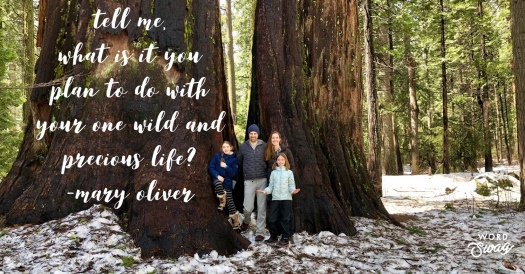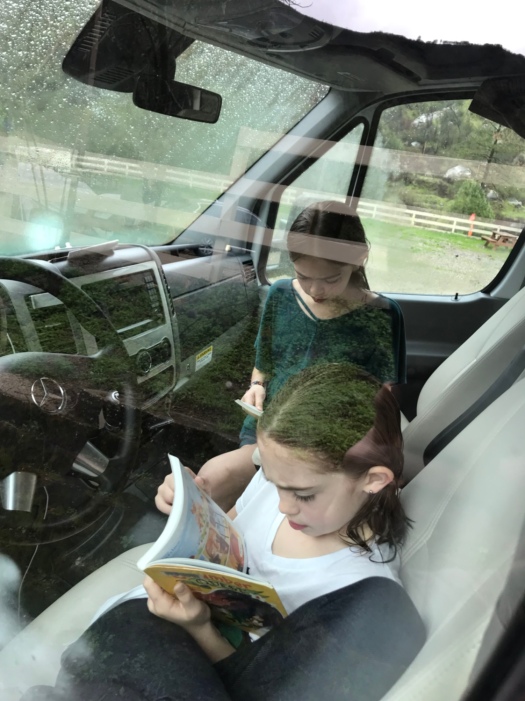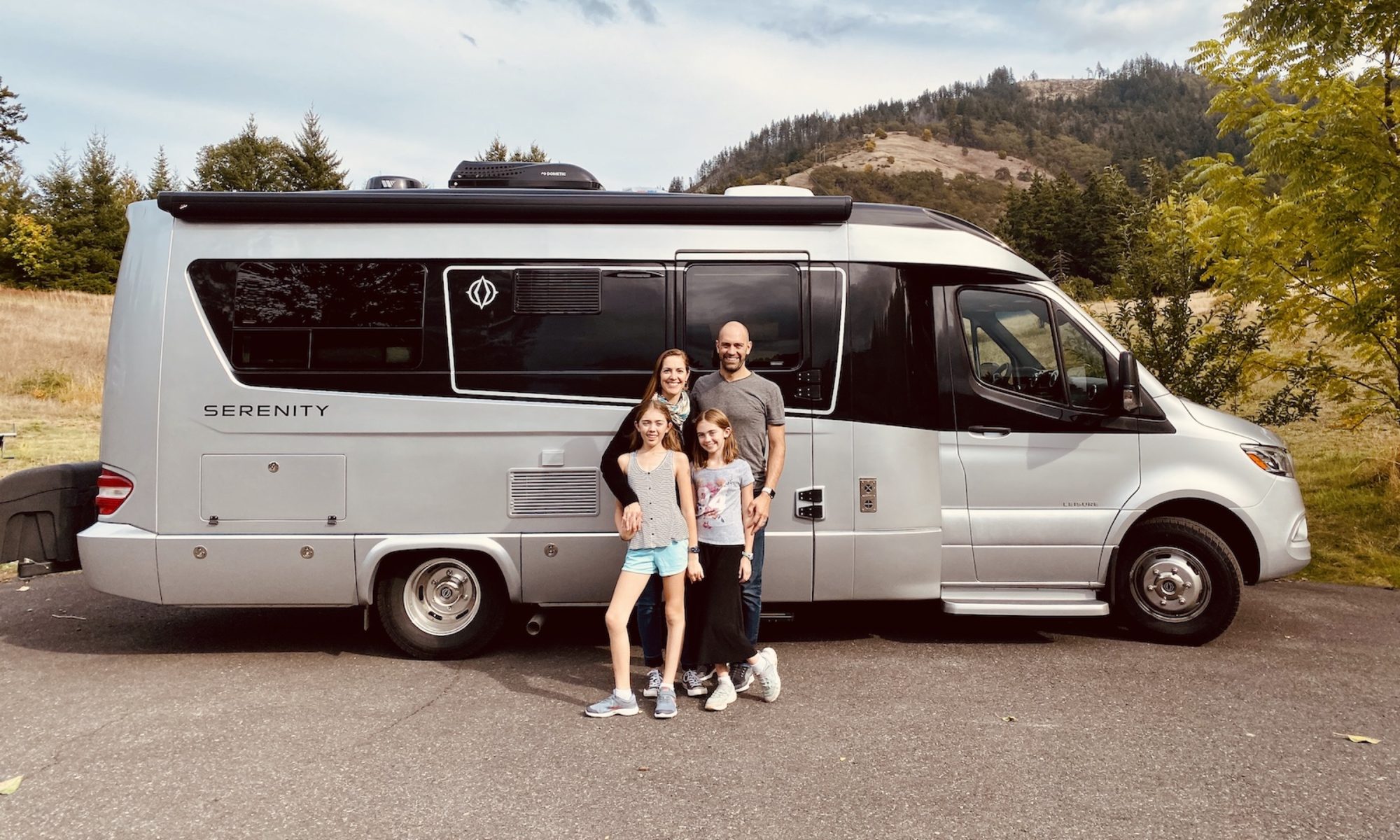
The second most commonly asked question we get is “what about school?” This question comes in two flavors:
- What is our general educational philosophy?
- How exactly are we going to do it?
To answer the first question about philosophy, we see that our approach falls into three core tenants:
- Intention
- Play
- Wisdom
The poet Mary Oliver asks the question we want at the heart of all our educational endeavors (both for the adults and the kids):
“Tell me, what is it you plan to do with your one wild and precious life?”
– Mary Oliver
And by “plan to do” we don’t think Mary Oliver is talking about the plan of “what you want to be when you grow up.” To us she is talking about intention and choice… inviting us to be active participants in our one-time, magical, precious journey on this planet. Even this blog post has become documentation of our intentions for this educational journey.
In the book “Essentialism” author Greg Mckeown reminds us that school didn’t start out being serious, full of hard work, or about competition and pressure. He says:
“The word school is derived from the Greek word schole, meaning “leisure.””
– Greg Mckeown
We have learned a lot about the concept of “playful inquiry” from Opal School (our elementary school) and we see the importance of continuing to learn, explore, and understand the world with a sense of joy, flow, and ease that comes when you play.
The older the kids get, the more pressure there is to make sure we fill their heads with information that they “should” know. And while we want them to know a lot of things, we also wish for them to have a deeper wisdom about what is important in life and how to create a life well lived. This quote from Lao-tzu reminded us that our ongoing efforts of deliberate subtraction are important for more than just our “stuff”… we need to apply this to our educational approach as well:
To attain knowledge, add things every day.
To attain wisdom, subtract things every day.
– Lao-tzu
As we subtract, we hope what remains is lots of room to be present to life, to be aware of and share our emotions, to hone our creativity and imaginations, to practice our adaptability and courage, to respond to injustice or calls for assistance, to process and problem solve, and to see where we can use our privilege to improve life for all beings. These seem like the best educational experiences we can provide to support the next generation, and the best ways we can be in service to the emerging future.
So this leads us to the second flavor of this question: “How are we going to do it?”
How? We’re going to have a lot of fun!
We’re going to visit museums, observatories, nature centers, and national parks. We’re going to read great books as a family. We’re going to ask people we meet about what they find most interesting about a place, or their job, or something they’re learning, or something they care about. We’re going to play cards, and track our expenses, and play math games online. We’re going to visit the places we read about. We’re going to volunteer. We’re going to cook, clean, do laundry, fill up our water tanks, empty our waste, check the tires, set up and take down, navigate, research our next stop, and find cool things to do. We’re going to practice typing, using spreadsheets, create presentations, and document our progress. We’re going to see shows and plays, art fairs, and festivals. We’re going to send postcards, and compose blog posts and magazine articles, and write long fantasy fiction stories. We’re going to hike, swim, paddle, bike, explore caves, and walk along the beach. We are going to keep our hearts open for what calls to us to serve.

And all the while, we’ll be turning life learning into “education-ese,” tracking it in Evernote, and categorizing it according to Washington State’s homeschooling subjects: reading, writing, spelling, language, math, science, social studies, history, health, occupational education, and art and music appreciation. To meet the homeschooling laws, we have to keep these records and get the kids either tested or evaluated each year (and keep those results).
Will they know how to study and take tests? Will they know how to buckle down and do three hours of homework every night? Will they be prepared for competition, performance expectations, testing rigor, ringing bells, peer pressure, or other aspects of traditional schooling life?
No, probably not. But hopefully they will have a deep wisdom that comes from a solid relationship with their own internal drive, their passions, their motivations, their interests, their yes and their no, their autonomy, their creativity, and their pleasure and they can apply these things to navigate their path in the future. And maybe they’ll use those skills to find a way to create a life that doesn’t have so much stress, and pressure, and unpleasantness for themselves and for others…

